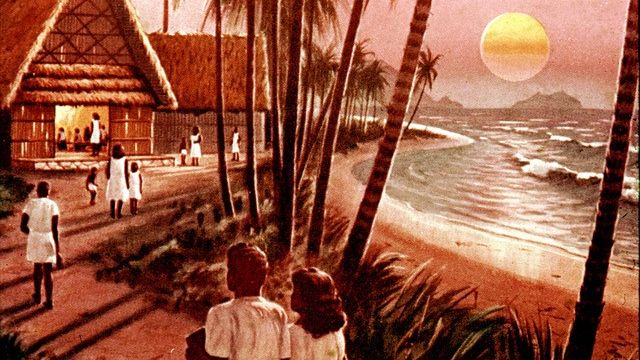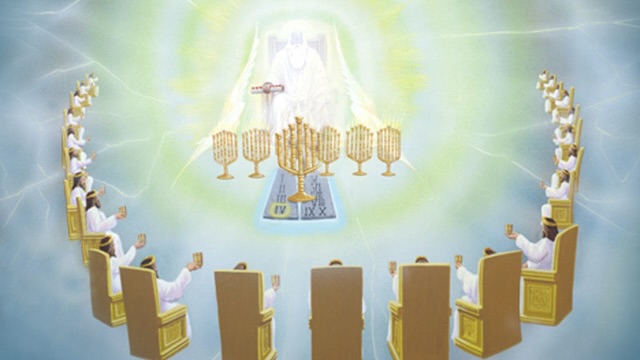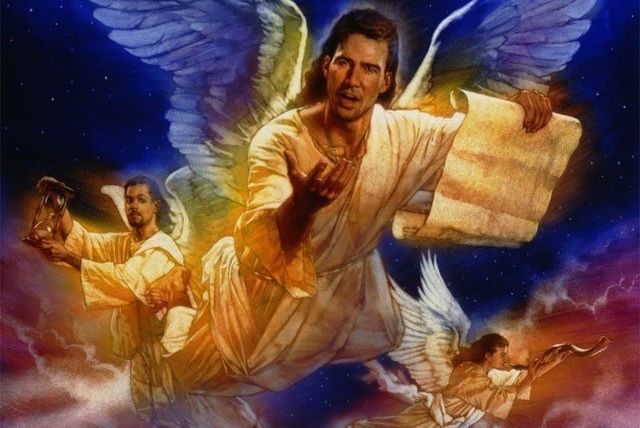Book of Revelation – a series presented by pastor Michael Walker
Lesson #3 – Revelation, chapter 3
SARDIS
vs. 1-6
Sardis – meaning: “that which remains”. The Reformation Period c. 1517- c. 1755.
Following the centuries of apostasy and persecution, there remained very few amongst the true faith. This remnant stepped forward towards a renewed spiritual life, yet that life which began with good intentions lost its momentum and began to wane until it was almost dead.
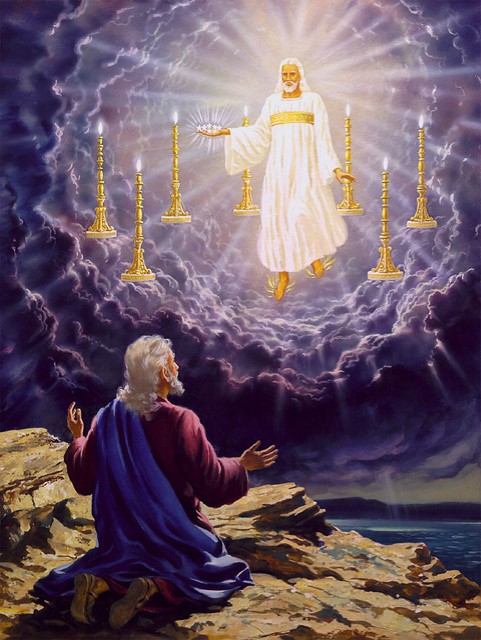
Sardis was built upon a crumbling rock at an elevation of 1,500 ft. It later became the capital of the kingdom of Lydia, one of the wealthiest kingdoms in the ancient world – monetary coins are believed to have originated in Sardis. The city, which came into prominence c. 1150 BC., appeared impregnable because of its position on the rock with its walls and only one entrance into the city.
It was captured by Cyrus in 549 BC, when a soldier scaled the rock on a dark night, evaded the careless guards who were either sleeping or otherwise engaged, and opened the gates to the Persians. The same took place in 213 BC when Antiochus the Great took the city.
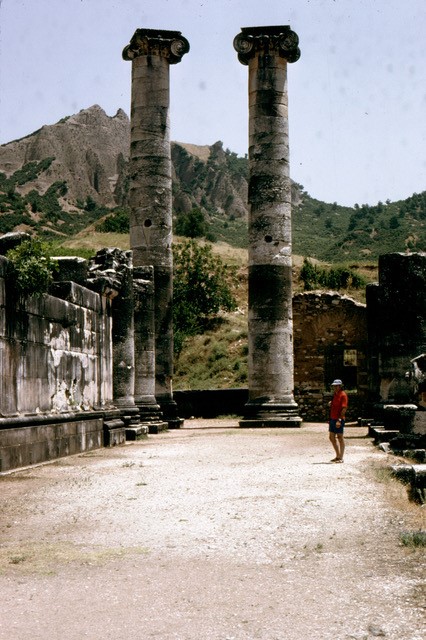
“Smyrna was dead, and yet lived. Sardis lived, and yet was dead” – W.M. Ramsay, The Letters to the Seven Churches of Asia, p.375. Sardis is likened to ‘The City of Death’ (Revelation 3:1), whereas Smyrna is likened to ‘The City of Life’ (Revelation 2:8).
“The letter to the Sardian church breathes the spirit of death, of appearance without reality, promise without performance, outward show of strength betrayed by want of watchfulness and careless confidence” – Ibid., p. 44.
vs. 2-4
Commendation – there appeared little to commend: that which was alive seemed ready to die! Their outward activity was not backed by inward spirituality. They had not held onto what they had seen and heard, but they had forgotten and neglected it. Only a few remained who had not defiled their garments (v.4).
v. 1
Reproof – They had a name (reputation) that they lived but were dead. They were hypocritical for they were not what they pretended to be!
“The reformation churches had discovered what it means to live by faith in Jesus Christ, but for the most part they eventually lapsed into a state resembling, in certain ways, that of the organisation from which they had withdrawn” – SDA Bible Commentary, Vol. 7, pp. 755, 756.
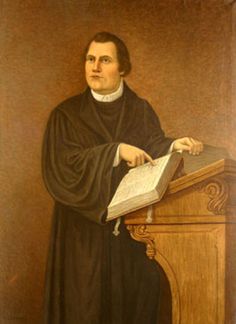
vs. 2-3
Counsel – to “be watchful, and strengthen the things that remain …. hold fast, and repent”. From the earnest and painstaking work of those Protestant reformers, the Post-Reformation period should have taken heed to this counsel of Jesus; but instead, they allowed those great movements, that the reformers began, to become stale. They became satisfied with their attainment and prevented any further progress by disallowing any further development to go no further than their established creeds.
v. 7
Promise – White is the symbol of Christ’s righteousness – c.f. Revelation 19:8; Zechariah 3:3,4. Even though our names may be blotted from the memory of man, Jesus will not blot the faithful from the Book of Life.
PHILADELPHIA
vs. 7-13
Philadelphia – meaning: “brotherly love”. Age of Revival and Missions 1755-1844.
The city was founded c. 150 BC and was named after Attalus II Philadelphus of Pergamos in honour of his loyalty to his brother, Eumenes II, who had preceded him on the throne.
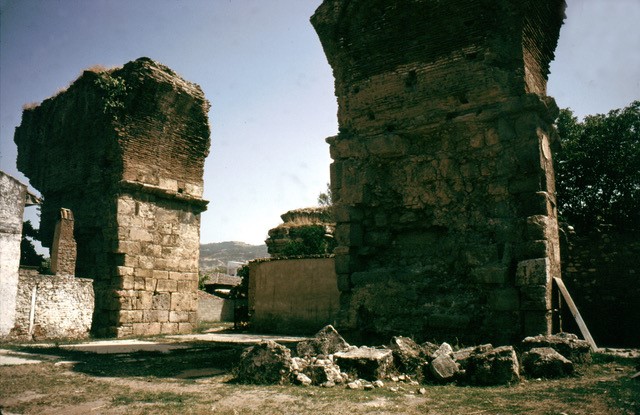
It was located as the gateway to the fertile Valley of Hermus. Its founder intended it to be a centre of the Greco-Asiatic civilization and to spread the Greek language and customs in the eastern sectors of Lydia and Phrygia; so, by AD 19 the Lydian language had ceased to be spoken in Lydia having given way to the Greek language.
This magnificent city was sometimes referred to as ‘Little Athens’. In AD 17, a severe earthquake totally destroyed it; but it was rebuilt by Emperor Tiberius, although it remained comparatively small.
v. 8
Commendation – As it was with Smyrna, Jesus gave no reproof to Philadelphia. Christ addresses His faithful remnant: they have kept His Word and not denied His name.
vs. 8-11
Counsel – the “open door” that “no man can shut” was set before them as the gateway to conveying the Gospel message to the entire world.
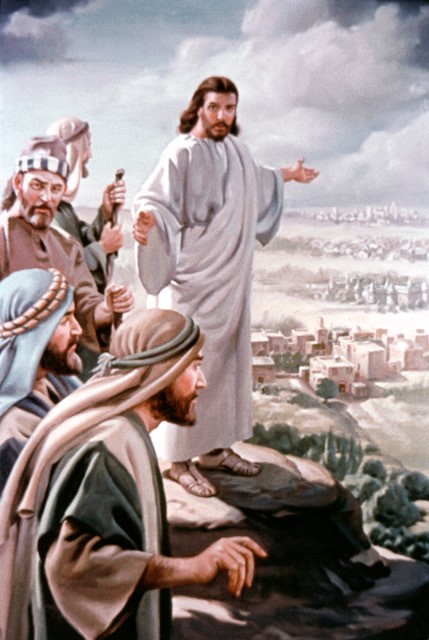
The evangelical preaching of the Wesley’s, Whitefield, Jonathan Edwards and others wrought a great revival. The evangelical movement led the way to the era of modern missions in the early 18th century. God opened the door to virtually every land on earth: William Carey went to India in 1793; Robert Morrison to China in 1807; Robert Moffat to Africa in 1817, followed by David Livingstone in 1841.
The British and Foreign Bible Society was launched in 1804; and this was followed by the American Bible Society in 1816. Also, the ‘Sunday-school Movement’ began around that time. Jesus said that the Gospel would be preached in all the world before He returned (Matthew 24:14). “The everlasting gospel” proclaimed to “every nation, and kindred, and tongue, and people” – Revelation 14:6,7.
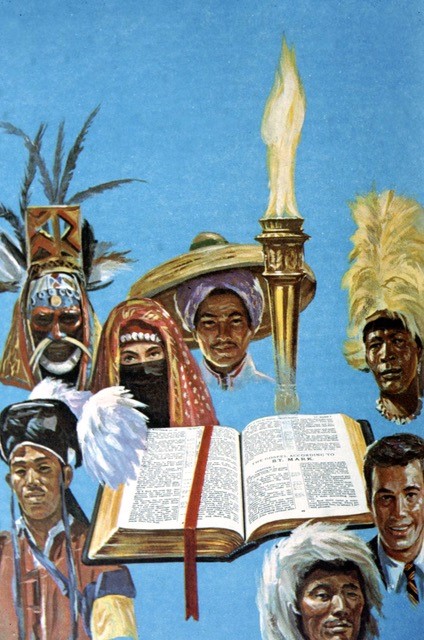
The culmination of this period came about as a result of the ‘Great Advent Awakening’ of the early 19th century, when, at the “time of the end”, the Book of Daniel was opened up (Daniel 12:4,9) to reveal that Christ was soon to return. The missionary zeal compelled many in love for a dying world, to go and convey the Good News to the rest of the world.
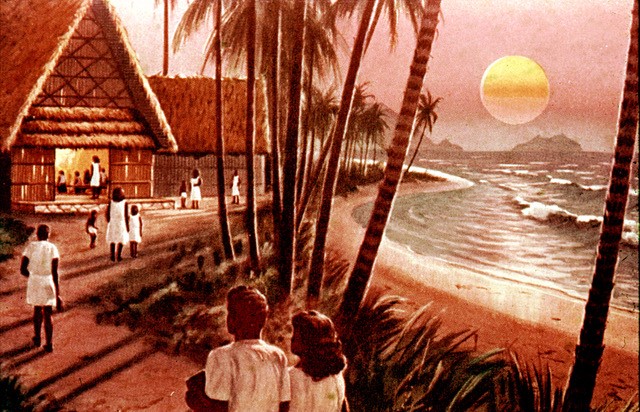
The awareness of the “Time of the End” was made more acute by the unfolding of the prophecies in Daniel and Revelation. The Great Earthquake of November 1, 1755, the Dark Day and the Moon as blood of May 19/20, 1780, and the falling of the stars in 1833 were seen as a direct fulfilment of prophecy preceding the Second Coming of Christ (Revelation 6:12,13; Matthew 24:29; Joel 2:31).
Further study recognized the fulfilment of the prophetic periods of the 1,260 years for the reign of antichrist (Daniel 7:25), and the end of the 2,300 years announcing that the Judgement had arrived (Daniel 8:14; Revelation 14:6,7) and this focused attention on the urgency to spread the warning to the world.
A sudden surge of discovery and inventions wrought huge leaps forward in travel and communications, enhancing the proclamation to the world.
v. 9, v. 12
Promise – Unbelievers would come to realize that God loves the faithful ones whom they had ridiculed and rejected. He would imprint His name in them and make them part of His temple – i.e. we shall bear the Name of Christ who owns us and the New Jerusalem, our destination!
LAODICEA
vs. 14-22
Laodicea – meaning: “judging of the people”. Modern Christendom during Time of the Pre-Advent Judgement 1844 to the Second Advent.
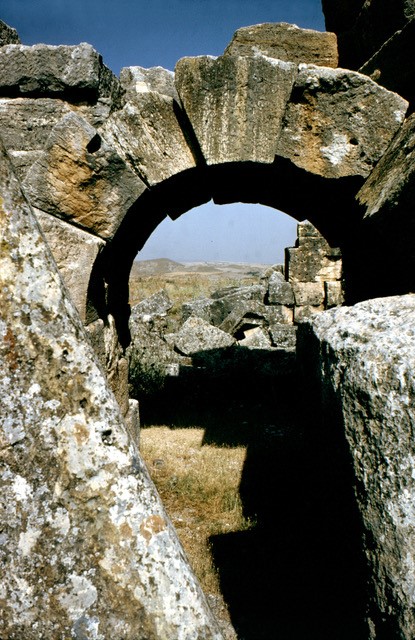
Laodicea was a wealthy trading city of bankers and financiers. It had large markets and interests in manufacturing. One of its commodities was an expensive, soft, glossy, black wool that was tinged with violet – worn by the inhabitants to display their wealth! The city was also a leading health resort in the Greco-Roman world, sought after for its lukewarm baths and mineral springs, attracting visitors from all over Asia and Europe. There was also an important school of medicine in the Temple of Karu, dedicated to Aesculapius, the Greek god of medicine and a counterfeit messiah. The school also produced an eye medication known as collyrium – made from the famous Phrygian stone. The Laodiceans were known to be a proud and arrogant people.
In mid-4th century, a church council known as the Council of Laodicea, was held in this city and passed the first Sunday Law.
v. 14
In His last message to the churches, Christ speaks as “the Amen” and “the faithful and true Witness”. At the close of human history He speaks as the Creator – i.e. the One Who began God’s Creation. The KJV does not reflect the accuracy of the original Greek because it gives the impression that Jesus was created. The word “beginning” is not the object in the Greek sentence but the subject: that means the creating was not done to Jesus but He Himself did the creating. Thus: “the origin of God’s creation” (NRSV), or “the source of God’s creation” (NEB), render the more accurate meaning.
vs. 15-17
Reproof – the church in these last days is really in a pitiable condition. It is neither hot nor cold but lukewarm – i.e. indifferent to its condition – and about to be spat out of God’s mouth!
Living in our affluent society, with all the comforts and benefits, especially in the west, we Christians fail to recognise our true, spiritual need. Therefore, the sins of self-satisfaction and indifference prevail.
v. 18
Counsel – to buy eternal values from Christ, the only One Who can supply our need. How do we buy from Christ? c.f. Isaiah 55:1-3,6,7.
Gold: pure faith that works by love (Galatians 5:6; James 2:5; Job 23:10).
White Raiment: Christ’s righteousness (Revelation 19:8; Romans 13:14; Isaiah 61:10).
Eye salve: Enabled to see by the Holy Spirit (Ephesians 1:18; John 16:8-14).
v. 19
Jesus calls us to repent. By being cold, we misrepresent Jesus to the world. He wants us to be hot – i.e. on fire for the Lord – committed to Him. The Greek word for zealous” means hot.
vs. 20-21
Promise – Jesus wants us to share our lives with Him in a living, dynamic and meaningful relationship, c.f. John 17:3; Matthew 7:21-23. He leaves us to choose and invite Him in. If we are willing to share our lives with Jesus, He will share His throne with us.
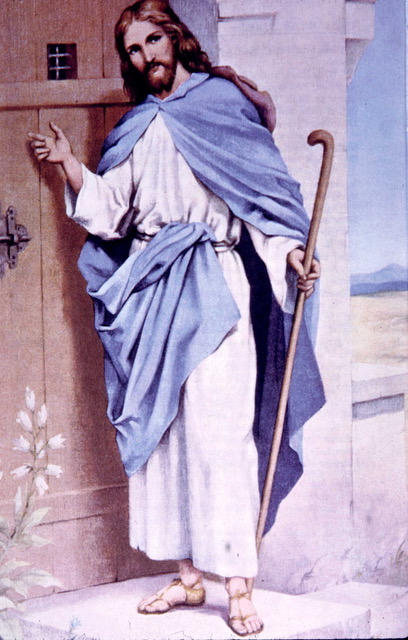
v. 22
Let us make sure we never turn a deaf ear to what Jesus says to us through the Holy Spirit.
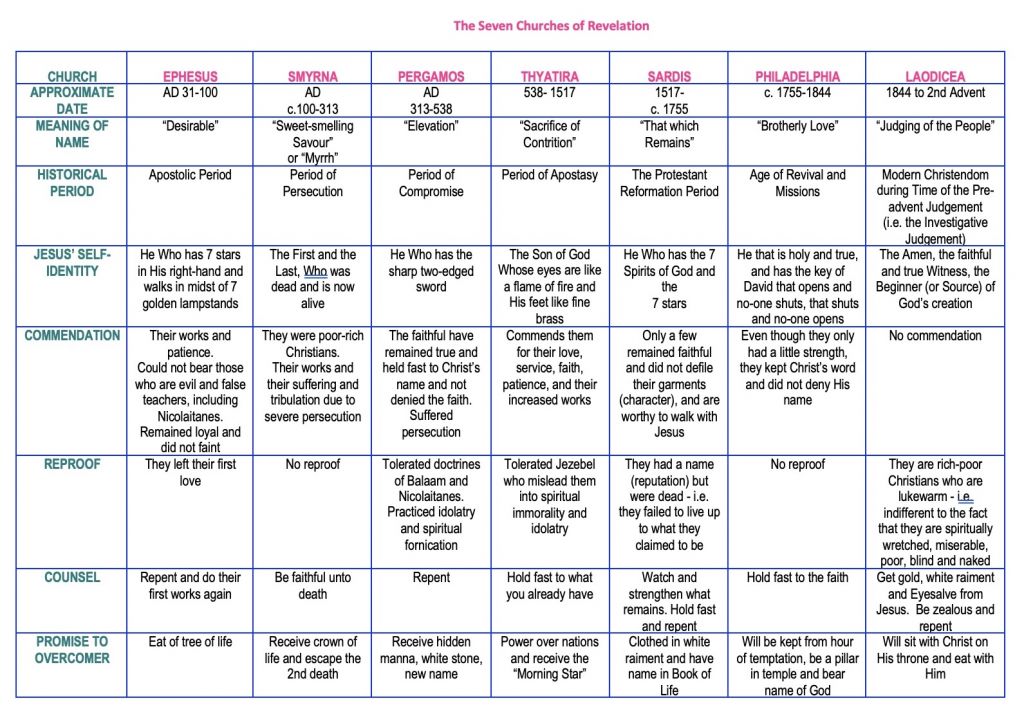
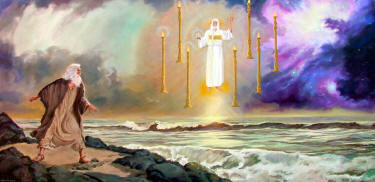
The full video presentation is available here:


